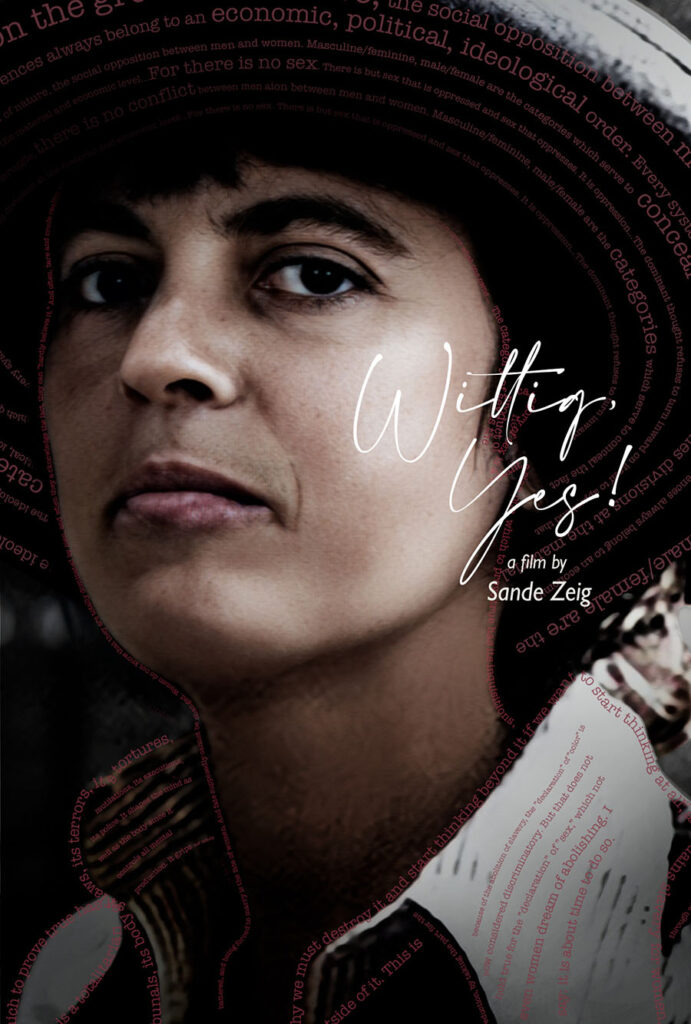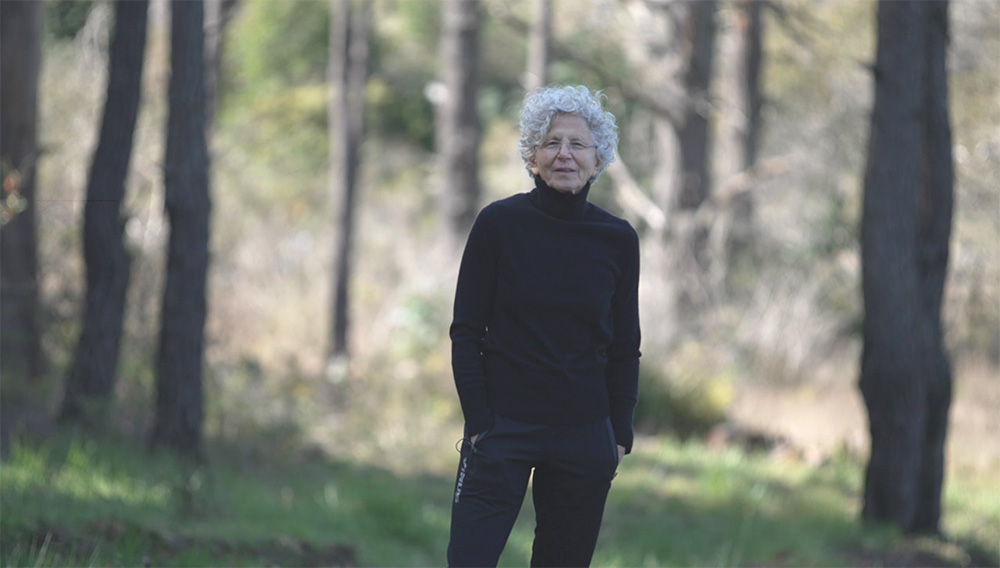Acclaimed writer and lesbian feminist icon Monique Wittig was a co-founder of the Women’s Movement in France and was awarded the Prix Médicis for her first novel, The Opoponax. Decades ahead of her time, beginning in the 1960’s, Wittig integrated innovative non-gendered pronouns into her writing.
Stating that “heterosexuality is a political regime,” a sex class system standing in the way of equity for everyone, Wittig was often misunderstood. Her lesbian point of view received such fierce resistance in feminist groups that it forced her to leave the movement she helped to create. This drove her to move to the United States with the love of her life, Sande Zeig.
In recent years, a fervent interest in Wittig’s work is having an inevitable resurgence including the city of Paris dedicating a garden to her memory. The Monique Wittig Papers are now available at the Beinecke Rare Book & Manuscript Library at Yale University.

Poster design Curious Sky. Photo Adele Prandini





